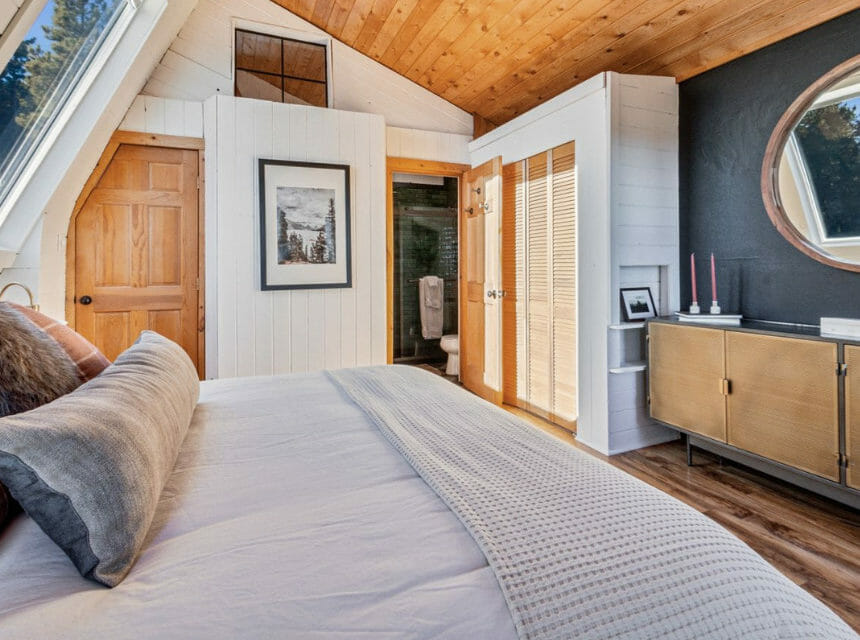Even if you don’t plan to sell anytime soon, it’s important to know your home’s value. For one, it can avoid a nasty surprise when your property tax bill comes due. Second, it can help you identify factors that may affect the list price that you otherwise could overlook.
Unfortunately, some factors lie beyond your ability to control. However, knowledge is power. While you might not be able to remove some nuisances, you can address them honestly and take measures to mitigate the impact by emphasizing your home’s other features.
What should you know about? What conditions could you be overlooking? These eight things are actually affecting your home’s property value.
Your Closest Neighbors
Does your next-door neighbor’s lawn decor feature a car up on blocks and used items in various states of disrepair scattered all over their lawn? If so, your property might be immaculate – but you’ll lose value all the same.
Unfortunately, there’s often little you can do to alter your neighbor’s behavior. However, you may have some recourse depending on the circumstances. For example, if your neighborhood allows rentals, you can ask the owner what tenant screening procedures they use, framing the conversation in a way that benefits you both. Landlords don’t want to end up with messy evictions to handle any more than you want your property value to decrease.
You may occasionally run into surly individuals, but most folks strive to maintain community harmony. However, you have other avenues of recourse if a direct approach fails. For example, if your home lies within a homeowner’s association community, you can notify the board of any violated codes, covenants, and restrictions. These organizations have the power to foreclose, meaning even the most recalcitrant tenants often step in line after enough complaints.
Local Schools
Young parents look for specific things when they seek places to live. They want adequate space for their growing family, a neighborhood that’s reasonably crime-free, and high-quality schools near their home.
Here, too, you don’t have much control. However, you can do your homework to emphasize the bright side to prospective buyers. If the public schools are lacking in your area, are charter or private options available? Does the blazing-fast internet in your location make distance learning a possibility?
Area Conditions
Several external factors can adversely affect your home’s value. Some of these may have existed when you purchased your property, while others can arise later. Still, it’s wise to be aware of the following:
- Power lines: More communities nowadays bury these for aesthetic and safety reasons. However, above-ground models still exist in many parts of the country. They can hum and irritate sensitive individuals and may pose health risks.
- Noisy airports, railroads, or highways: These structures can have prospective buyers feeling like the Grinch complaining about Christmas morning with all the noise, noise, noise! While new construction techniques reduce the din, there’s little you can do in most cases.
- Agricultural odors: Properties located downwind of a poultry, pig, or cattle farm may experience odors that make it difficult to open windows or enjoy an evening on the porch.
- Cemeteries: While a few souls may welcome a nearby cemetery for the quiet, many people have superstitions about living too close to the dead. Perhaps you can emphasize that the new owners will never have to worry about bad neighbors or a two-story structure going in next to their rancher
Nearby Amenities
One of the factors driving property values sky-high over the past few years is the wave of well-paid tech workers fleeing high-cost-of-living areas and heading to the country when telecommuting became a thing during the pandemic. Unfortunately, some have now received return-to-office orders that compel them to sell. However, they may struggle to recoup their purchase price or turn a profit.
Few people relish a lengthy commute each morning and evening, which is a driving reason why homes in rural areas often cost less per square foot than those in the suburbs. Proximity to the office isn’t the only factor influencing sale prices. Buyers also want nearby coffee shops and grocery stores. If your home’s location makes it infeasible to run to the corner store when a prospective buyer needs something vital like toilet paper at 3 a.m., they may look elsewhere.
Community Inclusivity
Inclusivity isn’t only a buzzword. It’s a crucial factor for many when deciding where to live. Who wants to face harassment – or, worse, the threat of violence – each time they step outside their front door?
This factor explains why homes in historically gay neighborhoods tend to appreciate more quickly than their competitors. Even if prospective buyers aren’t members of the LBGTQ+ community, they want an environment that’s supportive, welcoming, and warm toward all individuals regardless of their orientation.
Gender and sexual identity aren’t the only factors affecting home value. People of similar religious faiths or ethnic heritages tend to congregate where they feel most welcome. Think of New York City’s Little Italy or Chinatown.
What’s in a Name?
Here’s a house value tidbit you can’t do anything about – but it is fascinating. If your home’s physical address ends in “Avenue,” “Boulevard,” “Place,” or “Drive,” you can likely demand a higher sales price than folks who live on a “Street” or “Road.” Perception matters, and the former names speak of elegance and exclusivity.
Likewise, you might have an easier time demanding a higher purchase price if you live on Sunset Street, not First Street. Roadways labeled by number instead of name give a less glamorous impression, at least in print. However, consider the individual name. To some, “Elm Street” might call to mind images of southern charm, while others picture Freddy Krueger.
The Spooky Stuff
Speaking of scary, rumors of paranormal activity on your property can adversely affect its value. While you may find the occasional Zak Bagans willing to purchase a “demon house,” most buyers run for the hills.
If you’re chuckling, consider that several states have disclosure laws that require sellers to confess any spooky goings-on in the home or face financial penalties.
Unusual Design
Finally, a factor you can control. Perhaps you adore your bright pink-and-purple facade, complete with a glittery unicorn on your front porch. However, you might want to tone things down a notch if you go to sell. Unusual design choices can adversely affect your property value.
If your HOA doesn’t take issue with your choice, there’s nothing wrong with rocking fuchsia shutters. However, please be advised that you might want to invest in a paint job when it’s time to sell. Surveys show that light neutral tones like ecru are best, as they allow prospective buyers to imagine the property with their creative touches applied.
What’s Affecting Your Home’s Property Value?
It’s always wise to keep tabs on your property’s value. It helps you avoid unpleasant surprises and keeps you in the know if you decide to sell. Keep tabs on these eight things affecting your home’s property value. While you might not be able to remedy them all, you can highlight your home’s other features to mitigate the impact.





















